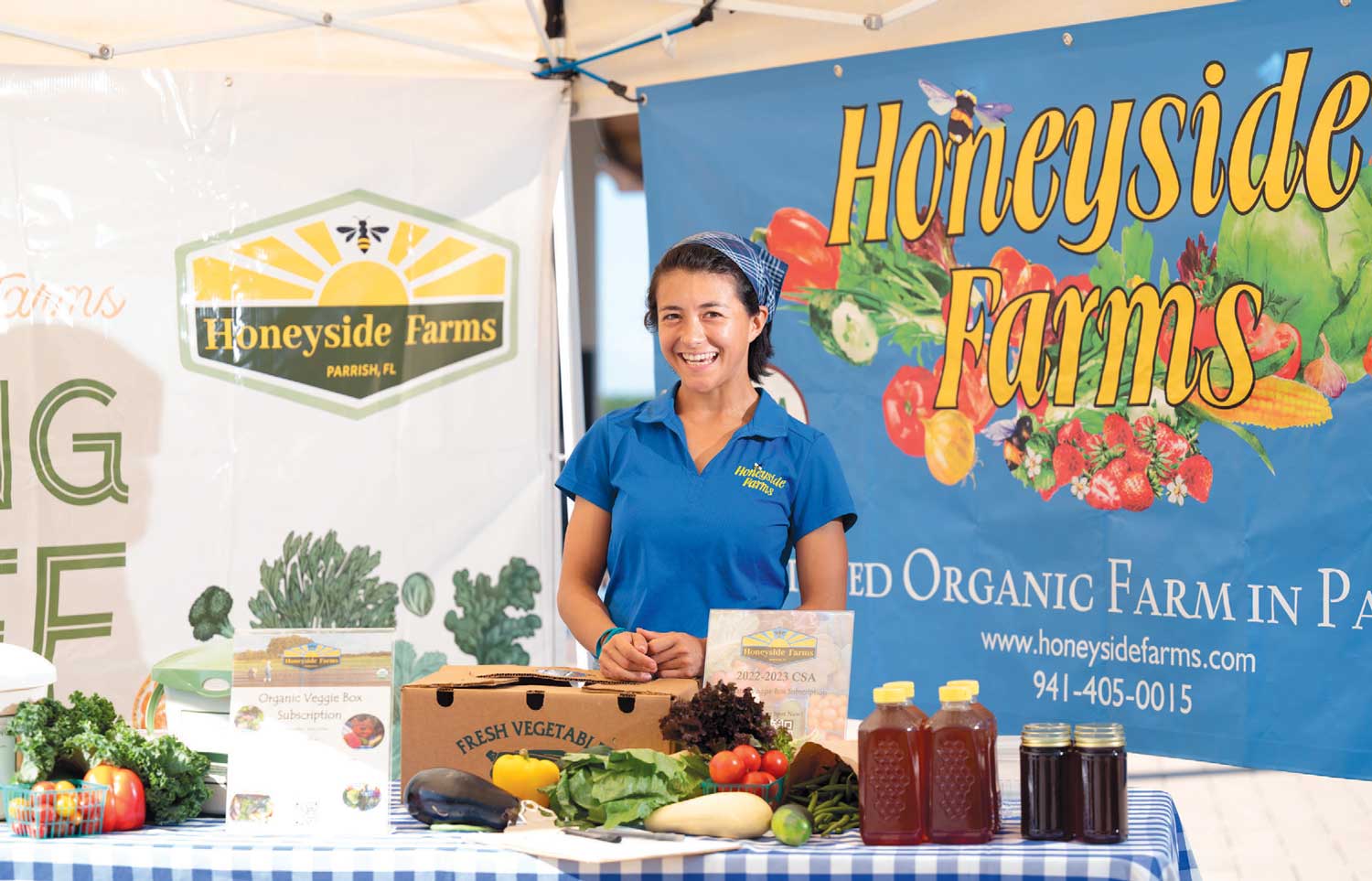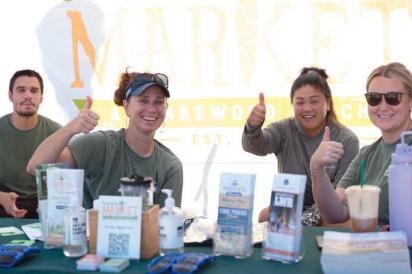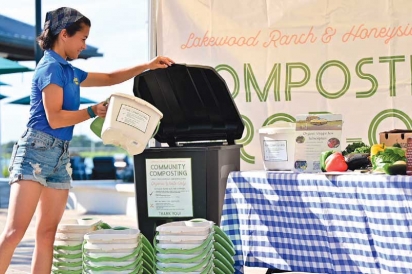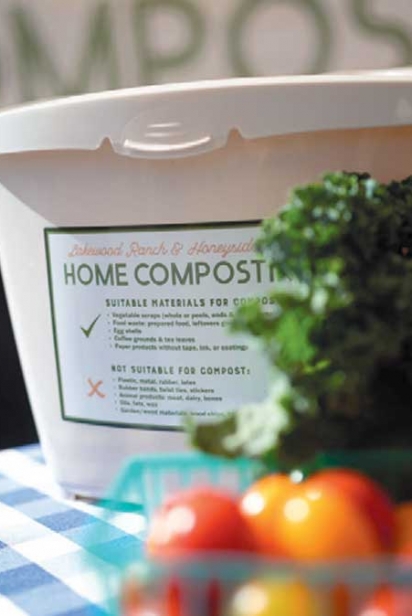Full Circle
Honeyside farms
Since its inception in 2009, Honeyside Farms has been making the community healthier, providing organic produce to area restaurants. Two years ago, the Parrish farm extended its reach thanks to a symbiotic community-supported agriculture (CSA) harvest subscription program.
“It’s a partnership between the customer and farm,” says Ida Van- Damme, Honeyside’s farm manager. “In exchange for us getting a more reliable income, the customer gets a share of our harvest and priority over other customers.”
The “share” referenced comes in the form of a vibrant veggie box filled with produce harvested from the farm’s certified organic fields at the peak of the growing season—which runs mid-November through May.
The Honeyside CSA began in 2020. The COVID lockdown had forced restaurants to close, but the crops kept growing. That meant the farm had plenty of produce but no regular customers to sell it to. Enter the veggie box concept. Honeyside Farms founder and owner Tiff any Bailey says the new venture produced sustainable farm revenue with a significant added benefit.
“We really believe in forming good connections with the community,” says Bailey, who is part of the fifth generation of local dairy and sod farmers. “When there isn’t something in the middle—like a warehouse—we get to connect directly with customers, which is really our favorite part.”
CSAs like Honeyside’s help small farms accurately forecast demand for their produce, avoiding future food waste come harvest time. With the average commercial produce having traveled more than 1,000 miles to grocery store shelves, CSA members can feel good about supporting local agriculture while also reducing their own food’s carbon footprint.
“At a grocery, you really have no idea where it came from or what was done to it. There are just lots of unknowns,” says VanDamme, who, in addition to running the day-to-day at the farm, is a bit of a visionary in small-scale agriculture. “This way, customers can trust they’re getting the freshest produce, which, in turn, is also healthier.”
Honeyside CSA members can pay for the whole season of weekly or biweekly veggie boxes upfront if they choose. A pay-by-the-week option makes it more accessible for those who might not be able to pay for 30 weeks at once.
Each veggie box is filled with the farmer’s choice, so members won’t know what they are getting ahead of time. There are no substitutions, but they can trust they are getting locally grown, seasonal, certified organic produce. The box contains a variety of seven to nine veggies which, according to Bailey, is likely enough for a family of four who eats half to most meals at home. This season, Honeyside is also considering collaborations with other local farms to offer add-ons to the boxes—goodies like mushrooms or eggs.
With the growing season under way, the first veggie box pickup is slated for November 9. After that, there’ll be two harvests and two pickup options per week at various locations. Last season Honeyside offered 10 locations; this season they have added at least five. One notable location is the Waterside Place–hosted Market at Lakewood Ranch, where Honeyside in partnership with Lakewood Ranch Communities just launched a weekly community compost program.
Honeyside has been collecting food scraps from restaurant customers for composting for quite some time but was ready to fulfill a need for residential composting. Constantly getting requests from customers who’d moved to the area from places where composting was available with a weekly trash pickup, they decided to act.
“They started asking ‘What can we do about our food waste?’” says Bailey.
When Honeyside approached Lakewood Ranch with the idea, the LWRC team recognized the program’s potential, graciously providing compost buckets and marketing materials to help get the program off the ground.
Marketgoers can get a countertop compost bucket at the Honeyside Farms booth for a one-time fee. They then collect food scraps all week and bring those buckets back to the farmers’ market when they pick up their veggie boxes.
The program diverts food scraps from the landfill back to the farm, where VanDamme turns them into compost. When finished, that compost will nourish the very soil used to grow the veggies that fill the veggie boxes.
“It really brings it full circle,” says Nicole Hackel, Lakewood Ranch Communities events and resident experience manager. “It’s a great opportunity for those who are used to composting and those who have never done it and want to try it.”
Although the community compost program currently focuses on those who attend the Market at LWR, Honeyside would love to see the program expand.
“Small organic farms still don’t have access to organic fertilizers. Composting helps bring soil to life,” says VanDamme. “It’s got all these microbes and nematodes and fungi that are recycling nutrients, and good soil needs that to thrive and fend off pests and diseases,” says VanDamme.
“Our crops are hungry for that organic matter.”
Honeyside Farms offers farm tours where you can connect with the farmers. In addition, the farm is always looking to connect with businesses that may want to explore offering veggie boxes as an employee perk.
“It’s another way to show you care about the health and wellbeing of your employee,” says Bailey.








